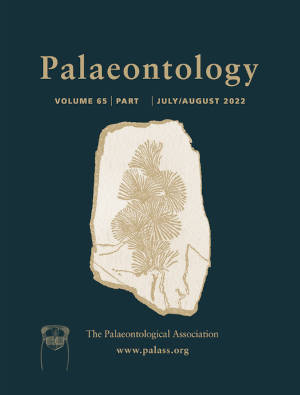Article: Osteohistology and taphonomy support social aggregation in the early ornithischian dinosaur Lesothosaurus diagnosticus
Publication: Palaeontology
Volume:
65
Part:
4
Publication Date:
2022
Article number:
e12619
Author(s):
Jennifer Botha, Jonah N. Choiniere, and Paul M. Barrett
Abstract
Abstract Lesothosaurus diagnosticus is a small ornithischian dinosaur from the Lower Jurassic Massospondylus Assemblage Zone of the upper Elliot Formation of the Karoo Basin of South Africa and Lesotho. The Early Jurassic age, comparatively large sample size, and multiple growth stages of Lesothosaurus make it an excellent taxon for investigating the plesiomorphic condition of ornithischian growth. Here, we examine the osteohistology of an ontogenetic series of Lesothosaurus diagnosticus using multiple limb elements to assess the maximum body size, life history, growth dynamics and potential for sociality in one of the earliest-branching ornithischian dinosaurs. We found that Lesothosaurus grew rapidly during early and mid-ontogeny (as shown by its highly vascularized woven-parallel complex) with its growth rate decreasing between 2–4 years of age, possibly indicating the onset of reproductive maturity. However, an external fundamental system, indicating a cessation in growth, could not be confirmed in any of the individuals studied, suggesting that at 6 years of age, this taxon was still not fully grown. The presence of multiple individuals of varying ontogenetic stages in a monodominant bone bed strongly suggests that it lived in multigenerational herds, indicating that, along with the Venezuelan Laquintasaura venezuelae, social behaviour developed very early in ornithischian evolutionary history.
